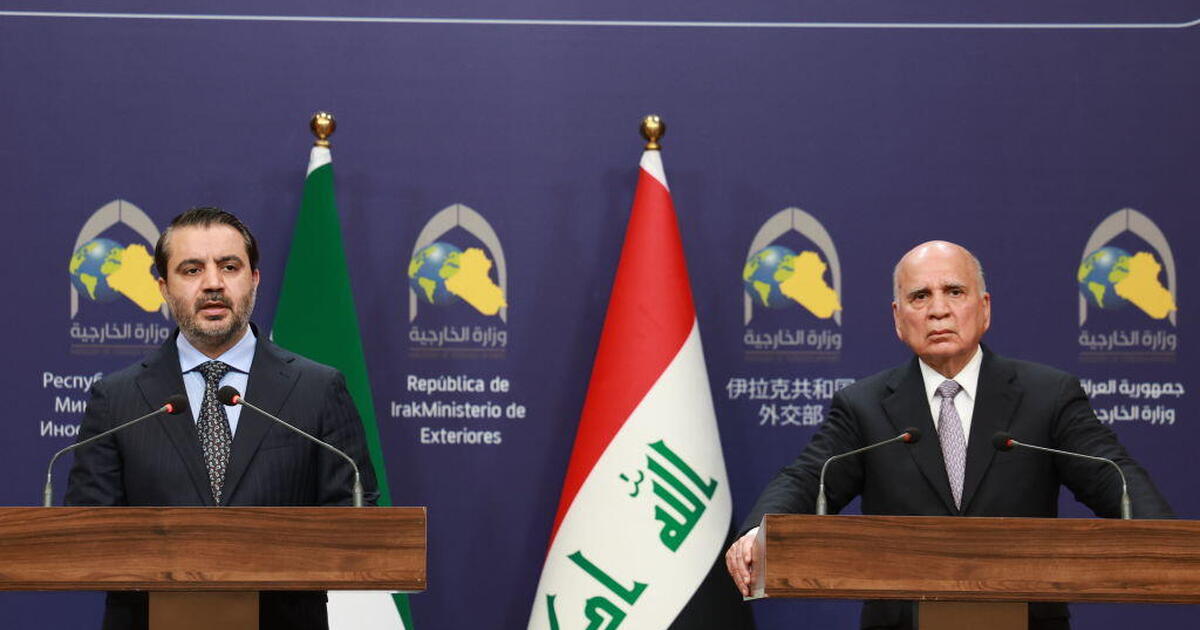In a significant development in the war against terrorism, the global head of the Islamic State (IS) in Iraq and Syria was killed in a joint operation involving the Iraqi national intelligence service and U.S.-led coalition forces, according to an official announcement made by the U.S. Central Command and the Iraqi Prime Minister on Friday.
The deceased leader, Abdallah Maki Mosleh al-Rifai, also known as “Abu Khadija,” was a deputy caliph in the militant organization and was recognized as one of the most dangerous terrorists not only in Iraq but across the globe. This successful operation is seen as a major victory in the ongoing fight against the forces of darkness and terrorism.
“The Iraqis continue their impressive victories over the forces of darkness and terrorism,” stated Prime Minister Mohammed Shia al-Sudani, expressing his satisfaction over the successful operation. The news was also announced on the Truth Social platform by President Trump on Friday night. “Today the fugitive leader of ISIS in Iraq was killed. He was relentlessly hunted down by our intrepid warfighters” in coordination with the Iraqi government and the Kurdish regional government.” Trump added, “PEACE THROUGH STRENGTH!” emphasizing his administration’s approach to handling threats to national security.
The U.S. Central Command (CENTCOM) also confirmed this development in a social media post, revealing that Abu Khadija was eliminated in a “precision airstrike” carried out on Thursday in Iraq’s Al Anbar Province. The operation involved the forces of the Iraqi intelligence and CENTCOM. Alongside Abu Khadija, another operative of the ISIS was also killed in the airstrike. A video clip showing the aerial view of the strike was also released to the public.
Following the successful airstrike, U.S. and Iraqi forces moved in to investigate. They found both deceased terrorists wearing unexploded suicide vests and armed with multiple weapons, as informed by CENTCOM. Abu Khadijah was positively identified using DNA testing. The DNA sample used for testing was collected during a previous raid which he had luckily escaped.
“Abu Khadijah was one of the most important ISIS members in the entire global ISIS organization,” stated Gen. Michael Erik Kurilla, the commander of CENTCOM. He further reiterated the commitment of U.S., allied, and partner personnel to continue eliminating terrorists and dismantling their organizations that pose a threat to the homeland and the region.
This significant announcement coincided with the first visit by Syria’s top diplomat to Iraq. During this visit, the two countries pledged to work in unison to combat the Islamic State. Iraqi Foreign Minister Fouad Hussein commented on the common challenges facing Syrian and Iraqi society, especially the threat posed by IS terrorists. He mentioned that the officials had detailed discussions about the movements of ISIS, whether on the Syrian-Iraqi border, inside Syria, or inside Iraq during the visit.
In a recent meeting in Amman, an operations room was formed by Syria, Iraq, Turkey, Jordan, and Lebanon to confront IS. According to Hussein, this operations room is expected to start functioning soon. The relationship between Iraq and Syria has been somewhat strained following the fall of the former Syrian President Bashar Assad. The current interim president of Syria, Ahmad al-Sharaa, previously known as Abu Mohammed al-Golani, had fought as an al-Qaida militant in Iraq post the U.S. invasion in 2003. He later fought against Assad’s government in Syria.
However, the Syrian interim Foreign Minister Asaad Hassan al-Shibani emphasized the historic ties between the two nations. He stated, “Throughout history, Baghdad and Damascus have been the capitals of the Arab and Islamic world, sharing knowledge, culture, and economy.” He further added that strengthening the partnership between the two countries would not only benefit their peoples but also contribute to the stability of the region. It would make them less dependent on external powers and better equipped to determine their own destiny.
The operation and the visit come at a critical time when Iraqi officials are anxious about a possible resurgence of the Islamic State, especially in the wake of Assad’s fall in Syria. Syria’s new rulers, led by the Islamist former insurgent group Hayat Tahrir al-Sham, have been actively pursuing Islamic State cells since taking power. However, there are fears of a breakdown in overall security that could provide an opportunity for the group to stage a resurgence.
Last year, the U.S. and Iraq decided to conclude the military mission in Iraq by September 2025. The mission, led by an American coalition, was aimed at fighting the Islamic State group. With the U.S. forces departing from some bases where they have stationed troops during a two-decade-long military presence in the country, Iraqi political leaders expressed confidence that the threat of the Islamic State was under control. They also mentioned that they no longer needed Washington’s help to beat back the remaining cells.
However, the fall of Assad in December led some to reassess that stance, including members of the Coordination Framework. This coalition of mainly Shiite, Iran-allied political parties brought current Iraqi Prime Minister Mohammad Shia al-Sudani to power in late 2022. The recent operation and increased cooperation between Iraq and Syria are indicative of the renewed efforts to tackle the threat of terrorism in the region.









